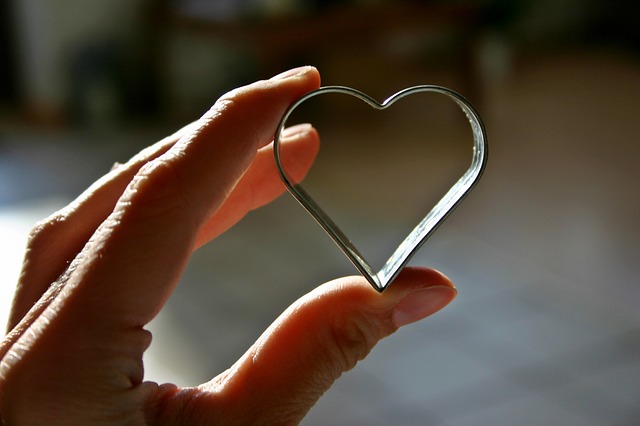“Kids have a hole in their soul in the shape of their dad. And if a father is unwilling or unable to fill that hole, it can leave a wound that is not easily healed.” Roland Warren.
I was five years old when my uncle drove me to the mental hospital. I was confused and afraid.
“Why do I have to go,” I asked Uncle Harry.
He looked at me with his round face and kind eyes. “Your father needs you.”
“What’s the matter with him?” I was beginning to cry and I clamped my throat tight to stop the tears.
I sank down into the leather seats of uncle Harry’s new Buick, a soft yellow beauty. It had four ventiports on each side of the engine that I imagined were eyes that could see into the future. The grill in front looked like an open mouth with huge teeth. I would worry that it might swallow me up if I got too close, but I felt safe inside the car.
Harry was a song writer and sang the words to one of his most popular songs, Sweet and Lovely, which had been recorded by Bing Crosby and Ella Fitzgerald. He looked at me and smiled, patting my knee as he drove. “Sweet and lovely,” he crooned, “sweeter than the roses in May. Sweet and lovely. Heaven must have sent him my way.”
Harry called out the names of the towns as we drove through them–Encino, Tarzana, Calabasas. I loved the sound of the names and imagined them as kingdoms in far-away lands where I would slay dragons and rescue damsels in distress.
As we drove up to the building I didn’t know what to expect. Camarillo State Hospital looked like one of the old California missions with palm trees in front and a big bell tower in the center with adobe buildings that had grassy lawns in front. But as we got closer, I saw the windows. They weren’t like our windows at home, but had thick bars over them and they were painted a puke pink, like Pepto-Bismol.
When we walked in, I immediately wanted to go home. I tried to pull away and leave, but my uncle held my hand tight and said we had to go in. “Your father wants to see you,” he said in his quiet, soothing voice. I liked Uncle Harry. He was married to my father’s older sister, Sophie. He was a round faced, roly-poly, man with glasses and a receding hairline. He was always smiling and seemed happy and upbeat.
As we entered the visitor’s room where they said we could meet with my father, people were everywhere and they were all in motion. A man in a white hospital gown walked around in circles, mumbling to himself as he made strange gestures with his fingers. A woman ran into the room yelling, “Don’t let them take me. Jesus, save me.” Two orderlies grabbed her by the arms and took her out of the room. A group of men walked back and forth, talking, but not to each other. A woman with grey hair dressed in a long dress that had once been blue, but was now faded nearly to white, twirled in circles and sang a sweet, sad song.
“Uncle Harry, please let’s go home.” This place wasn’t like anything I’d ever experienced in my life and I was terrified.
“It’s going to be O.K.,” Uncle Harry told me. But he looked scared himself.
I noticed my father at the back of the room. He jumped to his feet when he saw us. I wanted to go to him, but I held back. He looked strange. His hair was messed up. His clothes hung on him and he had a wild look in his eyes I had never seen before. There were particles of food embedded in the corners of his mouth.
He walked our way, picked me up and hugged me. He suggested we “go for a stroll on the grounds.” I was glad to go outside and his words calmed me. We had often gone for strolls at a park near our home and he would often hoist me up on his shoulders.
My father took one hand and my uncle took the other and we walked outside. We found a bench in a grassy area outside on the hospital grounds. We sat side-by-side, my uncle, my father, and me. I looked up at the palm trees, but turned towards him when my father asked, “How’s your mother?”
“She’s O.K.” I told him. I didn’t know what to say. I wanted to explain why she wasn’t here but I didn’t know. His attention shifted quickly to my uncle.
“You’ve got to get me out of here,” my father implored. He reached out and grabbed Uncle Harry’s shoulder.
“Take it easy,” Uncle Harry tried to calm him with his soft words and kind smile. “The doctors say you just need some time to rest and recuperate.”
My father jumped to his feet and started pacing and talking rapidly. “I don’t get any rest here. This is a crazy house and all I get are drugs and shots and they’re talking about shocking my brain. Get me the hell out of here, Harry.”
Harry’s voice was quiet, He got up and he put his hand on my father’s arm like he was gentling a frightened stallion. “I’ll talk to the doctors, I promise. Just calm down. I’m sure you’ll get out soon.”
I was confused and scared. Why was my father here? What kind of place was this? Why did he call it a “crazy house?’ My uncle’s assurance that “you’ll get out soon,” didn’t come soon enough for my father.
Years later, I heard it had been rumored that the Eagles’ mega-hit, “Hotel California” was a reference to the hospital. These lines from the song resonate with my father’s experience when he escaped from Camarillo seven years after he had been committed:
“Last thing I remember, I was
Running for the door
I had to find the passage back to the place I was before
‘Relax’ said the night man,
‘We are programmed to receive.
You can check out any time you like,
But you can never leave!’
Welcome to the Hotel California.”
My uncle came to visit my father every Sunday and I went with him. Being a dutiful son was something I learned early. Even at age five, I felt responsible for my parents. Though the story of why my father was in a mental hospital emerged slowly and was never talked about, I came to understand from overhearing my mother and uncle talking that my father had a “nervous breakdown.” He had become increasingly depressed because he couldn’t support his family and took an overdose of sleeping pills. In my child’s mind, the newest family member on the scene was me, so I reasoned that I must have been the cause of his breakdown and I must help fix him.
I visited my father for fifty-two excruciating Sundays with Uncle Harry. I thought about the story of Alice in Wonderland.
“But I don’t want to go among mad people,” Alice remarked.
“Oh, you can’t help that,” said the Cat: “we’re all mad here. I’m mad. You’re mad.”
“How do you know I’m mad?” said Alice.
“You must be,” said the Cat, “or you wouldn’t have come here.”
― Lewis Carroll, Alice in Wonderland
My father’s condition grew increasingly worse. He was given more drugs and more shock treatments, until he didn’t seem to know who I was. The doctors told my mother he would need treatment for the rest of his life. In my first act of rebellion against my role of dutiful son, I told my mother I didn’t want to go on any more Sunday drives to Camarillo to see my father. She agreed that I could stop going.
But now my duty shifted to being my mother’s little helper while I asked myself questions that could never be voiced out loud. What’s wrong with my father? Is he “depressed?” Is he going through “male menopause?”
From an early age my mother used to ask, whenever I’d experienced a difficult situation, “So, what did you learn?” From my days visiting my father, I learned that even when we can’t get answers to questions, we should still ask them, even if only to ourselves. Now, years later, I think of Rilke’s Letters to a Young Poet:
“Be patient toward all that is unsolved in your heart and try to love the questions themselves, like locked rooms and like books that are now written in a very foreign tongue. Do not now seek the answers, which cannot be given you because you would not be able to live them. And the point is, to live everything. Live the questions now. Perhaps you will then gradually, without noticing it, live along some distant day into the answer.”
Rilke was someone I’d learn about later in my life. But when I was younger, I lived for many years with six terrors that haunted my dreams:
- Is my father “crazy?”
- What really happened to him?
- Will it happen to me?
- Will I try and kill myself someday?
- How do I find a woman who will love me and not leave me?
- How do I become a man without a father to guide me?
This article is part of a new book I’m writing. I’d appreciate your feedback and comments.
This article first appeared on Jeds blog.




